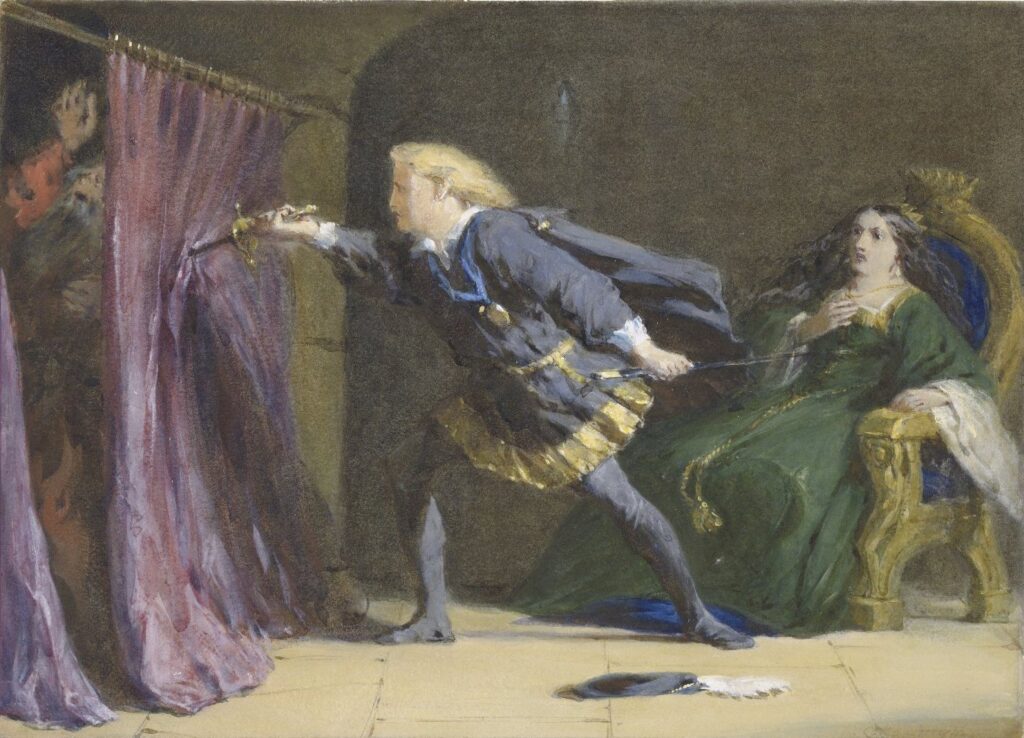Note: If you wish to receive, via e-mail, (1) my weekly newsletter or (2) daily copies of these posts, write to me at rrbates1951@gmail.com. Comments may also be sent to this address. I promise not to share your e-mail with anyone. To unsubscribe, write here as well.
Monday
As awful as recent developments may be with regard to the Trump administration grabbing people off the streets and sending them to prison camps in El Salvador and Louisiana, I find a tiny degree of comfort that great writers of the past have recognized such reprehensible behavior and called it out in memorable poetry. Esquire’s Charles Pierce has applied Hamlet to Karoline Leavitt, White House spokesperson, after she jeered at Trump’s victims.
Here’s the sweet-smiling Leavitt commenting on the horrific video, promoted by the Trump administration, of Salvadoran soldiers and police officers brutalizing people who have been sent there, many because of misinterpreted tattoos. Asked whether the purpose of the sadistic recording is to persuade migrants to self deport, Leavitt replied, “We are encouraging illegal immigrants to actively self-deport to maybe save themselves from being in one of these fun videos” (Pierce’s italics).
To which Pierce responds, “The woman is the living embodiment of Hamlet’s conclusion that ‘one may smile, and smile, and be a villain.’”
Hamlet is referring here to Claudius. The prince has just learned from his dead father’s ghost that Claudius poured poison into his ear while he was sleeping. Hamlet, who it appears has been filling manuscripts with various observations, resolves from this moment on to devote his note taking to a single subject: the “smiling, damnèd villain” that is his uncle:
I’ll wipe away all trivial, fond records,
All saws of books, all forms, all pressures past,
That youth and observation copied there,
And thy commandment all alone shall live
Within the book and volume of my brain,
Unmixed with baser matter. Yes, by heaven!
…
O villain, villain, smiling, damnèd villain!
My tables—meet it is I set it down
That one may smile and smile and be a villain.
At least I am sure it may be so in Denmark.
We should all have Hamlet’s focus at the moment. Thinking of the play, I can’t help but think of Hamlet, Sr. as our great presidents of the past—say, a combination of Washington and Lincoln—coming to warn us that our democracy has been taken over by a usurper. American democracy, for all its drawbacks, has been a jewel in Enlightenment’s crown, and now it is being sold to the highest bidder by a money-grubbing huckster. Trump has seduced America as Claudius seduces Gertrude, who is failing to appreciate the man she so casually forgets:
The Ghost: Ay, that incestuous, that adulterate beast,
With witchcraft of his wits, with traitorous gifts—
O wicked wit and gifts, that have the power
So to seduce!—won to his shameful lust
The will of my most seeming-virtuous queen.
We, meanwhile, are like Hamlet, stunned by the contrast between the greatness of America’s past and its shabby present. It’s a contrast comparable to that between Hamlet’s father and his uncle, which Hamlet sets forth for his mother:
Look here upon this picture and on this,
The counterfeit presentment of two brothers.
See what a grace was seated on this brow,
Hyperion’s curls, the front of Jove himself,
An eye like Mars’ to threaten and command,
A station like the herald Mercury
New-lighted on a heaven-kissing hill,
A combination and a form indeed
Where every god did seem to set his seal
To give the world assurance of a man.
This was your husband. Look you now what follows.
Here is your husband, like a mildewed ear
Blasting his wholesome brother. Have you eyes?
Could you on this fair mountain leave to feed
And batten on this moor? Ha! Have you eyes?
Trump as a mildewed ear? A moor compared to a mountain? And not only when set against the towering figures of Washington and Lincoln. Barack Obama and Joe Biden are mountains compared to this narcissistic braggart.
Meanwhile, Trump sycophants like Leavitt are the Poloniuses in this drama and should take heed what happens to him. “A rat, a rat,” shouts Hamlet as he stabs Polonius through the tapestry. Or in the immortal words of NeverTrumper Rick Wilson, “Everything that Trump touches dies.”


